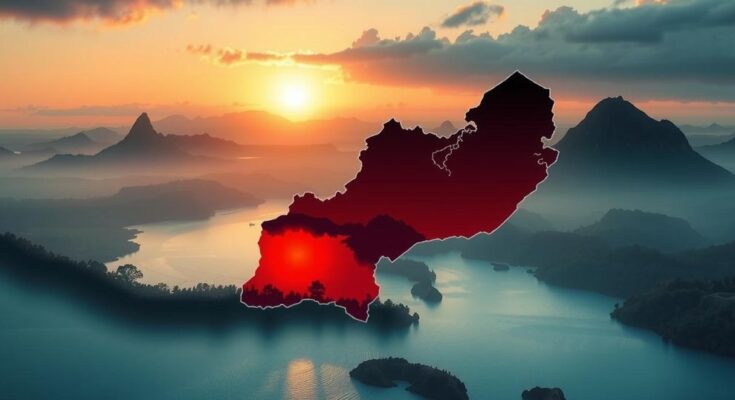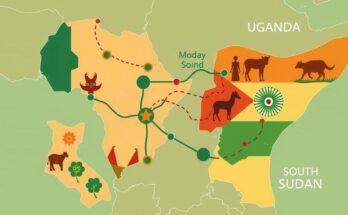On January 27, 2025, M23 rebels seized the city of Goma in eastern Congo after issuing an ultimatum to the Congolese army. The takeover has resulted in increased panic among residents and a humanitarian crisis, with the region’s airport closed and roads blocked. The international community, including the U.S. and France, is calling for a ceasefire and raising concerns over Rwanda’s involvement.
On January 27, 2025, M23 rebels announced their capture of Goma, a significant city in eastern Congo. This takeover followed a 48-hour ultimatum for the Congolese army to surrender their arms. The rebels reassured Goma’s residents to stay calm, while the Congolese government remained silent on the developing situation. The entry of rebels into Goma sparked what the United Nations described as “mass panic” among the city’s 2 million residents, leading to the government labeling the events a “declaration of war.”
The capture resulted in the closure of the airport and blocked roads, isolating the region, which the U.N. named a humanitarian and security hub. The U.N. special representative for Congo conveyed that with the situation escalating, the people of Goma felt “trapped.” This offensive in a resource-rich area threatens to intensify an ongoing conflict and exacerbate one of the world’s largest humanitarian crises, resulting in millions being displaced.
In a significant diplomatic move, Congo suspended relations with Rwanda, which denies supporting M23 despite evidence provided by U.N. experts. The recent escalation in violence has also resulted in the deaths of 13 peacekeepers, increasing the urgency for intervention as more Congolese citizens flee. M23 has made substantial territorial advancements along the border with Rwanda after several failed peace attempts in the region.
On January 26, M23 commanded the Congolese army to surrender by 3 a.m. on Sunday, or face an invasion of the city. Meanwhile, the Uruguayan army, part of the U.N. peacekeeping mission in Goma, reported that some Congolese soldiers had abandoned their posts. Images released show armed personnel registering with peacekeepers in various military and civilian attires, indicating a chaotic state of affairs.
Congolese Foreign Minister Thérèse Kayikwamba Wagner accused Rwanda of blatant aggression and direct hostility. Conversely, Rwanda’s U.N. ambassador did not directly address the allegations but argued that the Congolese government had failed to commit to peace discussions. Both the United States and France have urged for a ceasefire and called on Rwanda to cease its support for M23, with the U.S. promising to utilize all available measures to address the ongoing conflict.
Despite Rwanda’s denial of backing M23, it has acknowledged troop presence in eastern Congo, citing security concerns and alleging a buildup of Congolese military forces. U.N. experts estimate that as many as 4,000 Rwandan troops may currently be stationed in Congo, intensifying the complex nature of the ongoing crisis.
The ongoing conflict in eastern Congo, specifically involving the M23 rebel group, signifies one of Africa’s prolonged wars. The region, characterized by its mineral wealth, has been the center of deadly confrontations exacerbated by foreign involvement and internal governance issues. The M23 group’s resurgence comes amidst diplomatic tensions between Congo and Rwanda, as allegations of support for the rebels intensify amidst worsening humanitarian conditions that have affected millions of residents, generating calls for a ceasefire and peace negotiations.
In conclusion, the recent capture of Goma by M23 rebels highlights alarming developments in eastern Congo, threatening to escalate a protracted conflict. Diplomatic ties between Congo and Rwanda are strained, with allegations of direct military support for the rebels causing international concern. The humanitarian implications of this conflict are severe, necessitating immediate attention to prevent further displacement and loss of life among the civilian population.
Original Source: www.thehindu.com




